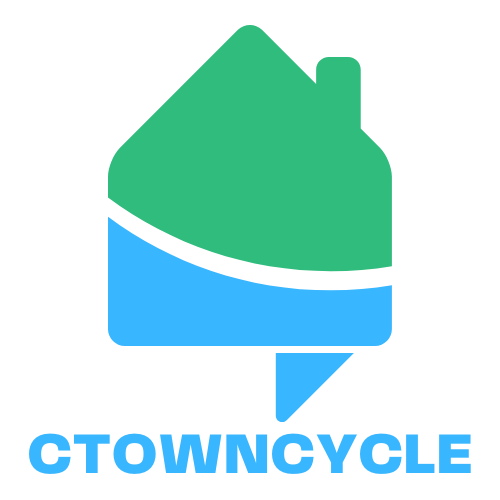Table of Contents
ToggleBuying a home can feel like stepping into a maze filled with hidden costs and unexpected twists. Among these, closing costs often sneak up like a ninja in the night, ready to pounce on unsuspecting homebuyers. But fear not! With a little creativity and a dash of strategy, house hacking can turn those pesky fees into a mere footnote in your financial journey.
Understanding Closing Costs
Closing costs encompass various fees payable when finalizing a property purchase. These costs can catch homebuyers off guard, making it crucial to gain a solid understanding of them.
Definition of Closing Costs
Closing costs refer to the expenses beyond the property price that buyers incur at the time of closing. These expenses typically include fees for services like inspections, appraisals, and title insurance. Costs vary based on location, property type, and lender requirements. Homebuyers should account for approximately 2% to 5% of the purchase price as closing costs. Understanding these figures enables buyers to budget effectively and avoid surprises.
Typical Closing Costs Breakdown
Common closing costs consist of several key components, each impacting the overall amount.
| Closing Cost Type | Description |
|---|---|
| Loan Origination Fee | Lender charges for processing the loan |
| Appraisal Fee | Cost for property assessment |
| Title Insurance | Protection against title defects |
| Inspection Fees | Charges for home inspection services |
| Recording Fees | Costs to record the property deed |
| Prepaid Taxes and Insurance | Advance payments for future obligations |
Homebuyers should anticipate these items when assessing final costs. Analyzing them can assist in identifying potential savings and strategies for house hacking to lessen overall expenses.
The Concept of House Hacking
House hacking involves strategies that allow homeowners to offset their expenses. This approach enables individuals to leverage space in their properties to generate additional income.
What Is House Hacking?
House hacking refers to renting out parts of a home to cover housing costs. This practice often includes sharing living space with tenants or operating short-term rentals. Homeowners can utilize basements, spare bedrooms, or separate units as rental opportunities. By generating revenue through these means, they significantly reduce their monthly mortgage payments and other expenses.
Benefits of House Hacking
House hacking offers numerous benefits for homeowners. First, it creates a steady income stream that can help with mortgage payments. Second, it reduces financial strain by sharing utility bills and maintenance costs. Third, homeowners can gain experience as landlords, which adds valuable skills to their resumes. Additionally, investing the extra income in savings or retirement funds can lead to long-term financial security. Overall, the advantages of house hacking enhance the affordability of homeownership.
How Closing Costs Impact House Hacking
Closing costs significantly influence the financial dynamics of house hacking. These costs can affect how homeowners strategize their investments and manage overall expenses.
Analyzing the Financial Aspects
Closing costs typically range from 2% to 5% of the purchase price, adding a substantial amount to initial expenses. For a $300,000 home, this could mean an extra $6,000 to $15,000. Such expenses include loan origination fees, appraisal fees, and insurance premiums. Understanding these figures allows potential house hackers to budget effectively. He or she can analyze potential rental income from tenants against these costs, ensuring profitability and reducing financial strain. Calculating total monthly expenses, including closing costs and potential income, leads to informed decision-making.
Strategies to Mitigate Closing Costs
Different strategies exist to mitigate closing costs effectively. Negotiating fees with lenders can lead to discounted closing costs. Finding state or local grants can provide financial assistance towards these expenses. Refinancing options might also be available to absorb some closing costs into the mortgage terms. Exploring house hacking options can significantly lower effective mortgage payments by providing rental income. Utilizing tax benefits associated with rental properties further enhances financial flexibility. Identifying these strategies empowers homeowners to maximize their investment while minimizing initial payouts.
Getting Started with House Hacking
House hacking offers a strategic way to offset homeownership expenses. Understanding key elements helps homeowners make informed decisions.
Choosing the Right Property
Selecting the right property is crucial for successful house hacking. Multi-family homes like duplexes or triplexes allow for multiple rental incomes under one roof. Properties with separate entrances and utilities provide both privacy and convenience for tenants. Consider location as well; proximity to public transport or local amenities increases rental demand. Analyze the property’s potential cash flow by evaluating current market rents versus mortgage payments. Look for homes in growing neighborhoods with strong rental markets, as these areas attract tenants looking for quality living spaces.
Finding Potential House Hacking Opportunities
Identifying potential house hacking opportunities involves thorough research. Start by exploring listings on real estate websites targeting multi-family units and properties with extra living spaces. Attend open houses to assess properties in person and gauge their suitability. Investigating local zoning laws provides insights into rental regulations that impact house hacking. Networking with real estate agents specializing in investment properties can yield valuable leads. Also, consider the possibility of short-term rentals in popular areas; platforms like Airbnb can help generate significant income from spare rooms or entire homes.
Navigating closing costs can be daunting for homebuyers but house hacking offers a practical solution. By leveraging rental income, homeowners can offset these expenses and make homeownership more affordable. Understanding the intricacies of closing costs empowers buyers to budget effectively and explore strategies for reducing financial burdens.
As they embark on their house hacking journey, choosing the right property is crucial. With the right approach and mindset, homeowners can turn challenges into opportunities, enhancing their financial stability while enjoying the benefits of property ownership. Embracing house hacking not only alleviates immediate costs but also sets the stage for long-term wealth accumulation.




